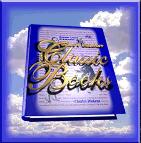World's Greatest Classic Books Feature:
George Orwell
Featured works:
All
Books Written By
George Orwell
BOOK LINKS
abebooks.co.uk.
A&E Shop
All-Ink.com
AlphaCraze.com
Amazon.ca
Amazon.com
Amazon.co.uk
BookCloseOuts.com
Booksamillion.com
Chapters.ca
eCampus.com
MUSIC LINKS
Music123
OldGlory.com
PlayCentric
PosterNow
PushPosters
Tower Records
SEARCH THE WEB
looksmart.co.uk
People-Finder.com
Search. Get Paid. Be Smart.
Died: January 21, 1950, in London, England
George Orwell was born Eric Arthur Blair on June 25, 1903, in Motihari, India. The Blair�s were relatively prosperous civil servants, working in India on behalf of the British Empire. Blair would later describe his family�s socioeconomic status as "lower-upper middle class," on comment on the extraordinary degree to which British citizens in India depended on the Empire for their livelihood; though the Blair were able to live quite comfortably in India, they had none of the physical assets or independent investments that would have been enjoyed by their class in England proper. Despite this factor, Ida Blair moved back to England in 1904 with Eric and his older sister Marjorie so that they could be brought up in a more traditional Christian environment.
In England, Blair entered the public school system, and was admitted to Eton College in 1917. For most students of this era, Eton led directly to higher education at a university, often Oxford or Cambridge. Blair shunned further formal schooling, and after leaving Eton in 1921, returned to India in 1922 to join the Indian Imperial Police. This work gave Blair his first real experiences with the poor and downtrodden whom he would later champion, and unhappy with the his position as the "hand of the oppressor," Blair resigned from the police force in 1927, returning to England that same year.
Upon return to England, Blair lived in the East End district of London, which was filled with paupers and the destitute, whom he saw as the spiritual kin of the Burmese peasants he had encountered as a policeman. In 1928, Blair moved to Paris to become a writer, where he again lived among the poor, and was eventually forced to abandon his writing temporarily and become a dishwasher. He returned to England the next year (1929), and lived as a tramp before finding work as a teacher at a private school. This position gave Blair time to write, and his first book, Down and Out in Paris and London, was published in 1933, under the pseudonym George Orwell. The publication of this first work, which was an account of his years living among the poor of Paris and London, marks the beginning of a more stable period for Orwell, in which he taught, opened a bookshop, and continued to write. His first fictional work, Burmese Days, appeared in 1934.
The next few years saw a steady stream of activity for Orwell, who produced A Clergyman�s Daughter in 1935 and Keep the Aspidistra Flying in 1936. During this period he also met Eileen Maud O�Shaughnessy, whom he married on June 9, 1936. That same year Orwell received a grant from the Left Book Club to produce a work dealing with the conditions of the poor, which resulted in the publication of The Road to Wigan Pier. In December of 1936, Orwell decided to enlist in the POAM, the Socialist military party in Spain, during the Spanish Civil War. Attracted by the vision of a society without class distinction, Orwell fought for socialism in Spain, but was wounded in the neck and forced to return to England in 1938. His account of his experiences in Spain was published as Homage to Catalonia that same year. Upon his return to England, however, Orwell fell ill with tuberculosis, which he neglected. In 1941, Orwell went to work for the BBC as a broadcaster for India, a post which he resigned to become the literary editor for The Tribune. This position was equally short-lived, however, as Orwell resigned in 1945 to begin work on Animal Farm. Orwell�s family life experienced significant upheaval during this period, marked by the adoption of a son, Richard, in 1944, and by the death of his wife Eileen during an operation in 1945. Soon after Eileen�s death, Animal Farm was published, and Orwell become "famous overnight". In reaction to the sudden glare of fame, Orwell moved to the island of Jura, off the coast of Scotland, with aggravated his tuberculosis considerably. While at Jura, Orwell wrote his last novel and perhaps most famous novel, 1984, and married Sonia Bromwell. In 1949 Orwell returned to England, but his tuberculosis was by that time painfully advanced. He eventually succumbed to the disease, dying on January 21, 1950.

1984
1984 is still the great modern classic of
"Negative Utopia."

Animal Farm
One of Orwell's best-known works, taking
on the guise of an anthropomorphic fable, warns against totalitarianism.




